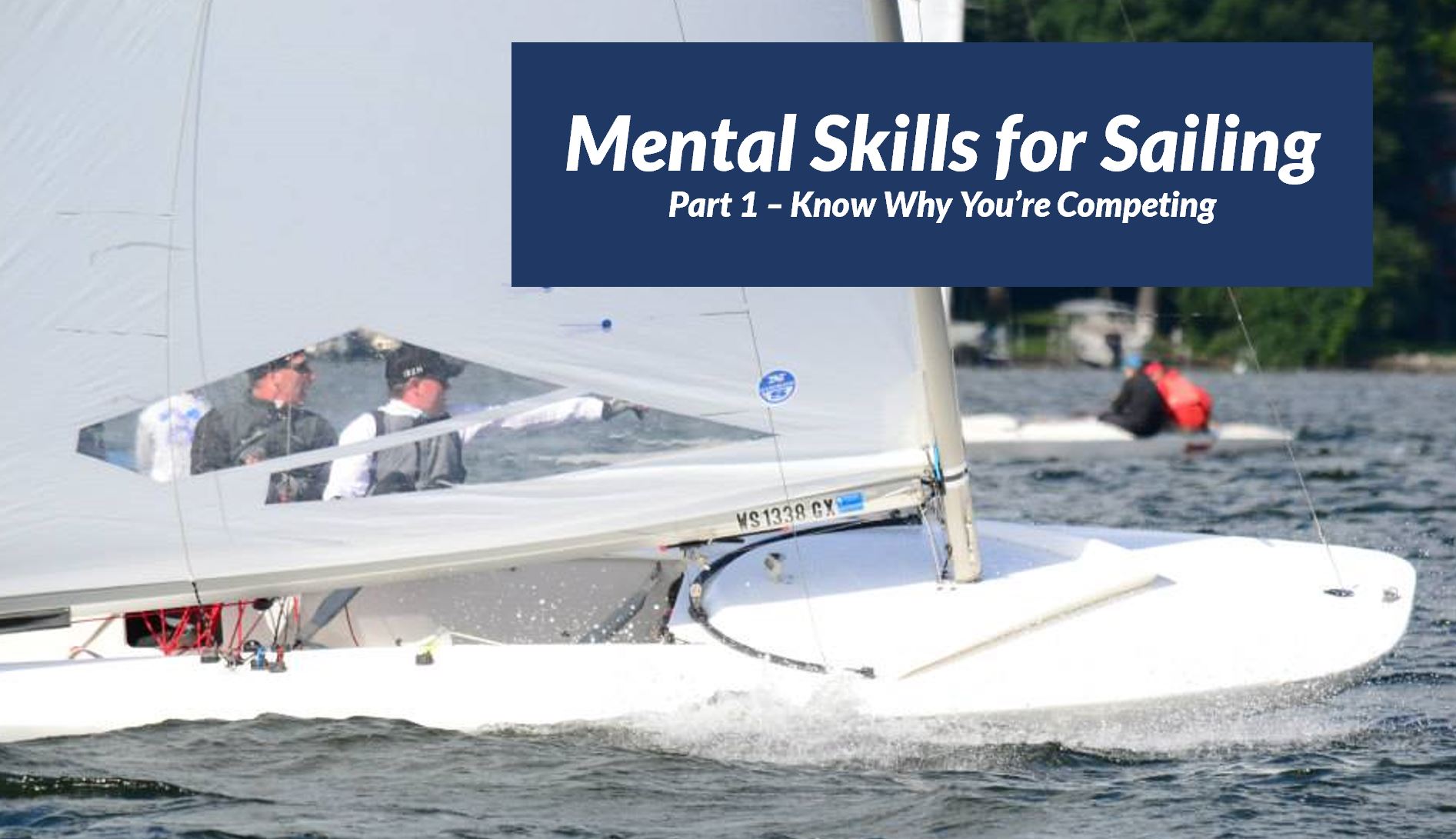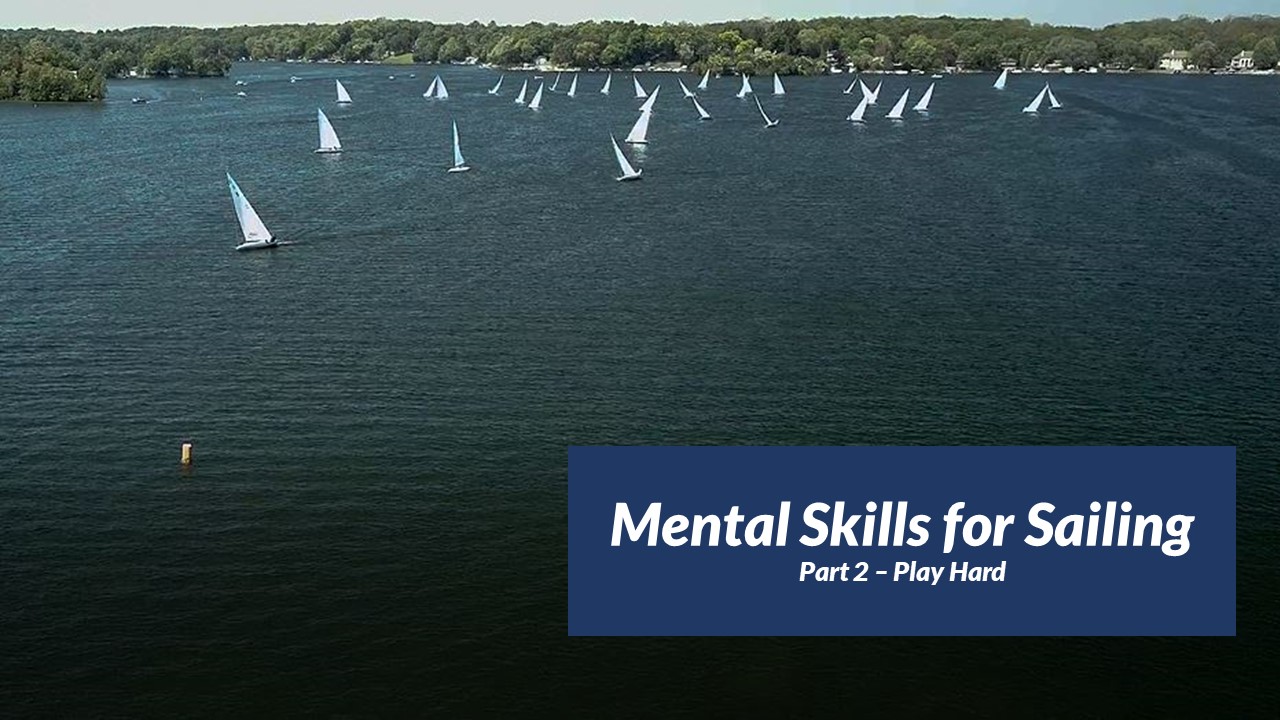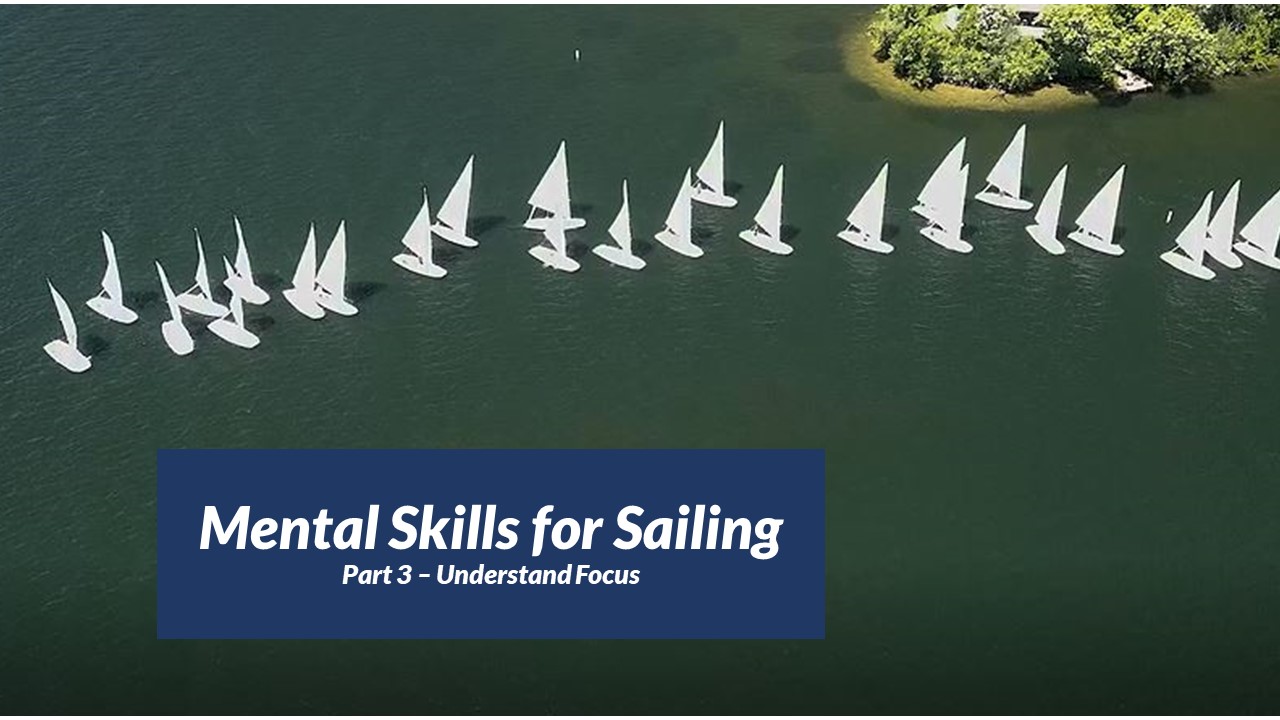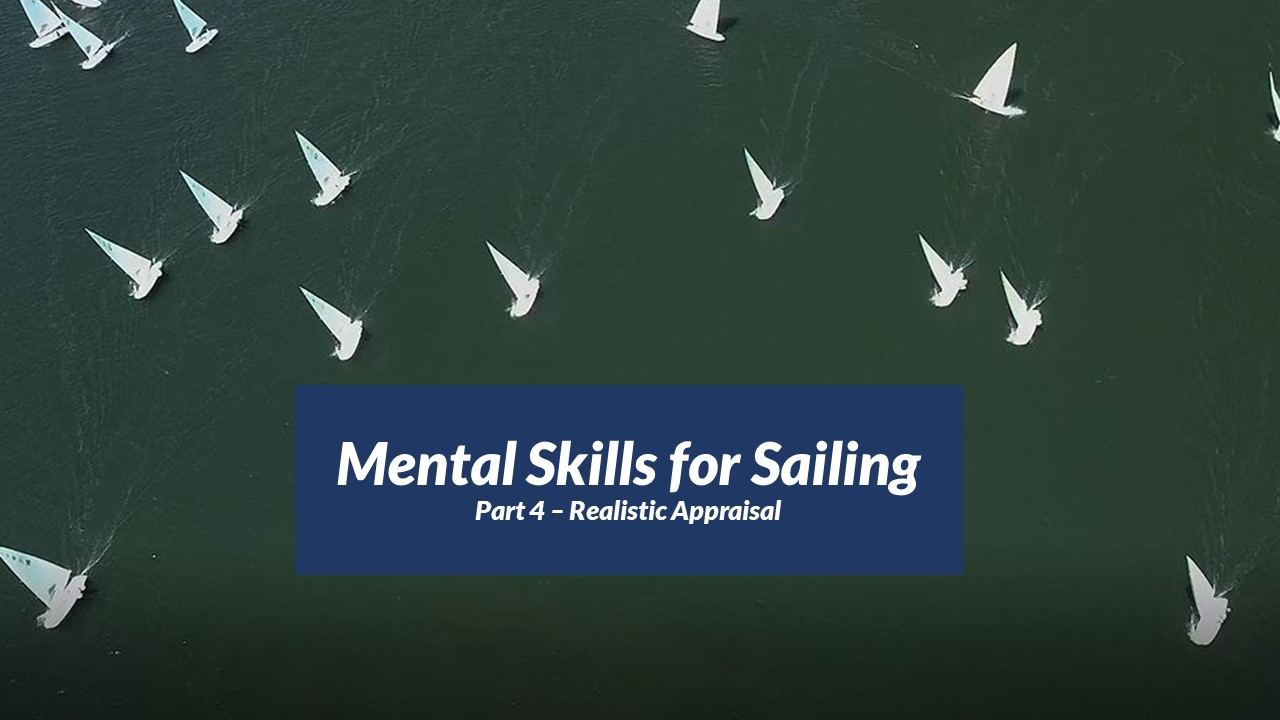Baseball is 90% mental. The other half is physical.
Yogi Berra
The big variable is your state of mind. Big differences in performance … [happen] because you sometimes draw on your sailing skills in the most productive way, and at other times you don’t.
Eric Twiname in Sail, Race and Win
In this series of articles, we boldly attempt to summarize the available wisdom on mental skills for sailing. We are not psychologists, or even accomplished “mental” sailors, but our study of this topic revealed several themes that resonated with us.
We consulted a wide variety of sources, both general and sailing-specific. It was comforting to find a great deal of consistency between them. Here are the major sources we used:
- The Inner Game of Tennis, by Timothy Gallwey. A classic book on mental aspects, recognized as definitive for all sports. Easy to read.
- Top Dog: The Science of Winning and Losing, by Po Bronson and Ashley Merryman. Integrates the results of research on competition.
- Winning: The Psychology of Competition, by Stuart Walker. Very detailed application of psychology to sailing.
- Sail, Race and Win, by Eric Twiname. Focuses on how to prepare yourself to win, including several chapters on mental aspects.
- Winning in One-Designs, by Dave Perry. Part 6 (four chapters) is devoted to Psychology in Racing.
In this first article, we explore the reasons people compete. Competing for healthy reasons is the foundation of all the remaining mental skills for sailing that we’ll discuss in future articles.
Healthy Reasons for Competing
Competition can bring out the best in people. The healthiest reasons for competing include the following:
- Assert independence, significance, and power. Competing lets you make your own decisions, take risks, and stand out as a person of substance and strength.
- Acquire competence and learn life lessons. Progress in mastering a skill is satisfying, regardless of the competitive results. What you learn about yourself in the process reaps benefits far beyond the sport.
- Have fun and be part of a group. Competition offers the element of surprise, opens up new experiences, and establishes you as part of a team or group.
Winning?
Society values winners, but not everyone can win or expects to win. Some competitors see failure to win as a problem for their ego. This is not healthy. As Dave Perry says, “It’s frightening to realize that people use sailboat racing, with all its inherent fickleness, uncertainties, and inequities as a standard for judging self-worth.”
What Game are You Playing?
As a result of perceived pressure to win, many competitors play less healthy “games.” Gallwey and Walker both refer to the classic 1964 book “Games People Play,” by Eric Berne. Here are several common games:
- Perfect-O (Gallwey’s term). Setting impossibly high standards for yourself and getting frustrated and tense when you can’t meet them.
- Look at me. I didn’t do well in the race, but I really excelled at the bar (or similar non-critical aspect of the competition).
- Nice guy/girl. Go ahead of me. I’d rather preserve our relationship than confront you in a contest.
- It wasn’t my fault. I didn’t win because … (insert any factor deemed beyond my control).
- I’m not really playing the same game. I’m just here for the … (insert any non-competitive reason: vacation, fun, etc.).
These games are unhealthy for two reasons: 1) to the extent they cause frustration and tension, they interfere with the relaxed concentration you need to execute complex skills and 2) to the extent they are defense mechanisms, they work against a desire to challenge one’s self and gain a sense of substance and significance.
Find the Right Game for You
If you want to reap all the benefits of competition, search for a game that’s worth playing for you. Then fight for success in that game.
The Inner Game
Gallwey chose to master the “Inner Game.” While teaching tennis, he developed techniques to help his students with the mental aspects of performance – how to get over their nervousness and self-criticism and play more automatically.
Gallwey used specific cues to focus the player’s attention and let the unconscious mind take care of performing the action. A popular example is the instruction to “watch the seams of the tennis ball as you prepare to hit it.” If you do this, your brain will automatically make you swing the racket to make good contact. In sailing, examples would be to “blankly stare at the horizon” (Buddy Melges) or “concentrate on the feeling of boat speed.”
Later, he realized that he needed more than techniques. He needed to instill a desire to win, not only in his students, but in himself. The key was finding the right definition of winning. Winning, to Gallwey, meant finding a challenging goal and overcoming the obstacles to reach it. That goal may or may not involve another competitor, but always involves challenging obstacles.
The Inner Game became a model for Gallwey’s life off the court. Using tennis, he learned to how to set challenging goals and how to focus his attention on the right things to achieve them. He then applied his learnings to more valuable life goals.
Make a Plan
To juice up your competitive spirits, spend time identifying a few challenging goals for your sailing. Then, get creative about the learning techniques to achieve these goals. Some of these techniques will need to include the mental skills for sailing, such as focusing your attention and not over-thinking. For more on this, see our post Sail, Race and Win: Take a Serious Approach to Improvement.





